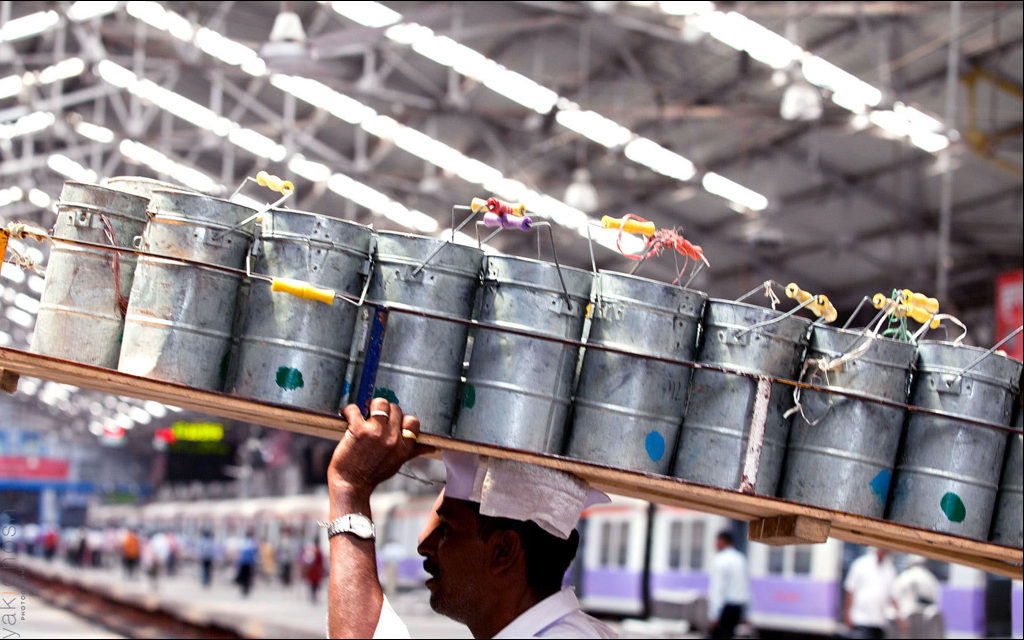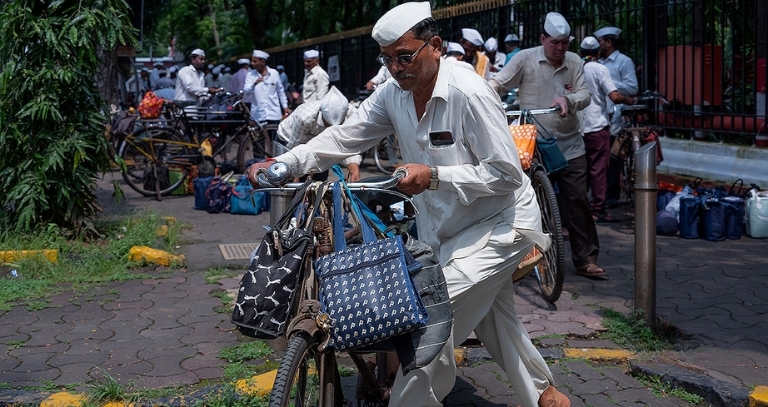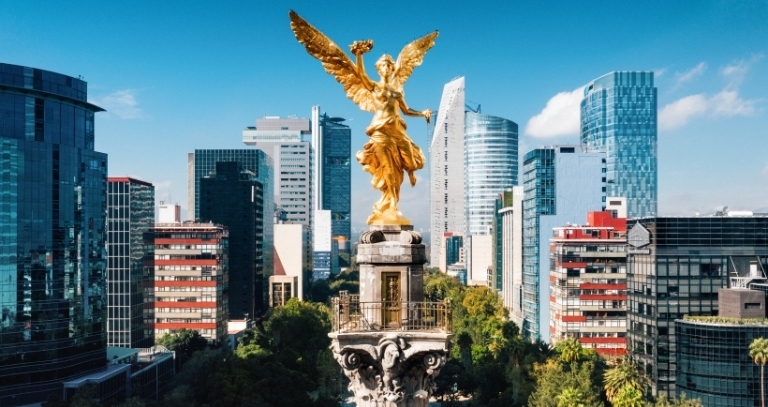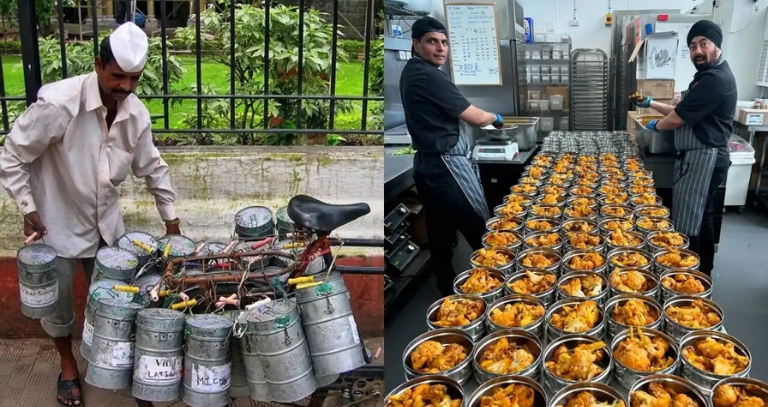
Mumbai Dabbawalas When you live in a fast-paced city like Mumbai, finding time to cook feels almost impossible. Between long commutes, tight schedules, and endless work pressure, preparing home-cooked meals often takes a backseat. Yet, amidst this urban chaos, one group ensures that thousands enjoy fresh, homemade food daily — the Mumbai Dabbawala.
The Story of Mumbai Dabbawalas
For over 125 years, the Mumbai Dabbawala community has been delivering homemade meals to office-goers with unmatched punctuality. What began as a small initiative has now become a world-famous network recognized for its efficiency, dedication, and discipline.
How Mumbai Dabbawalas Started
The incredible journey of Mumbai Dabbawalas began in 1890 when around a hundred men started delivering lunch boxes to working professionals. Over time, they formed the Mumbai Tiffin Box Supplier’s Association, which became the backbone of this unique delivery system. Today, through cycles, trains, and even on foot, these men deliver thousands of tiffins every day — regardless of the weather. Their story reflects hard work, teamwork, and devotion to service.
Interesting Facts About Mumbai Dabbawalas
The Mumbai Dabbawala system has earned international admiration for its flawless operation. Here are some fascinating facts about them:
-
Royal Recognition: Prince Charles and Richard Branson once met the Dabbawalas to understand their highly disciplined delivery system. They were impressed by their color-coded symbols and time management skills.
-
Royal Gifts: The Dabbawalas sent a traditional turban to Prince Charles and a Maharashtrian saree to his wife, Camilla Parker Bowles, as a wedding gift.
-
Education and Efficiency: Although most Dabbawalas are not formally educated, their accuracy and dedication have surpassed many corporate systems. Their secret lies in motivation, discipline, and a sense of purpose.
-
Equal Ownership: The Dabbawalas are not employees but equal partners in the Dabbawala Trust, sharing profits and responsibilities.
-
Six Sigma Rating: They have achieved a Six Sigma rating — meaning only one error occurs in six million deliveries. The rare mistake happened during the 2005 Mumbai floods.
Mumbai Dabbawala Salary and Work Life
Each Dabbawala earns around ₹12,000 per month and often takes up part-time jobs after their 9-hour delivery shift. Despite modest earnings, they find pride and happiness in their work. Moreover, everyone receives equal pay, emphasizing equality and teamwork.
Mumbai Dabbawalas Case Study
The Mumbai Dabbawala model is studied in prestigious institutions such as Harvard and IIM Ahmedabad. Their efficiency and management have inspired business leaders across the world.
-
Academic Recognition: The Dabbawalas often deliver guest lectures on leadership, time management, and teamwork.
-
Media Spotlight: They’ve been featured in Forbes, The New York Times, and even on Ripley’s Believe It or Not.
-
Corporate Collaboration: Companies like HUL, Microsoft, and Coca-Cola have partnered with them for marketing and brand promotions, leveraging their vast network.
-
Creative Campaigns: They distributed Coca-Cola samples and promoted Radio Mirchi’s morning show for over four years — without affecting their food delivery work.
How the Tiffin Coding System Works
To ensure accuracy, every lunchbox is marked with specific symbols and colors. Each code represents collection points, starting stations, destinations, buildings, and floors. This system helps the Dabbawalas deliver to thousands of people daily — without digital technology or GPS. Their remarkable ability to decode symbols ensures flawless service.
How Mumbai Dabbawalas Works
The Dabbawalas begin their day early in the morning, first collecting tiffins from homes across Mumbai. Then, they carefully sort and load each lunchbox onto trains, ensuring nothing goes missing. As the journey continues, more Dabbawalas join along the route to organize and streamline the process. Meanwhile, others coordinate at major train stations to keep everything on schedule. Afterwards, teams deliver the tiffins to different office areas with impressive accuracy. Eventually, the lunchboxes reach Nariman Point and other business hubs right before lunchtime. Moreover, their punctuality remains unmatched, even during heavy rains or scorching heat. Finally, dressed in white kurtas and Gandhi caps, the Dabbawalas create an iconic sight — a living symbol of simplicity, discipline, and devotion.
The Motto of Mumbai Dabbawalas
The philosophy that drives this incredible team is simple yet powerful:
-
Work is Worship
-
Customer is God
-
There’s No Substitute for Hard Work
-
Respect Human Values
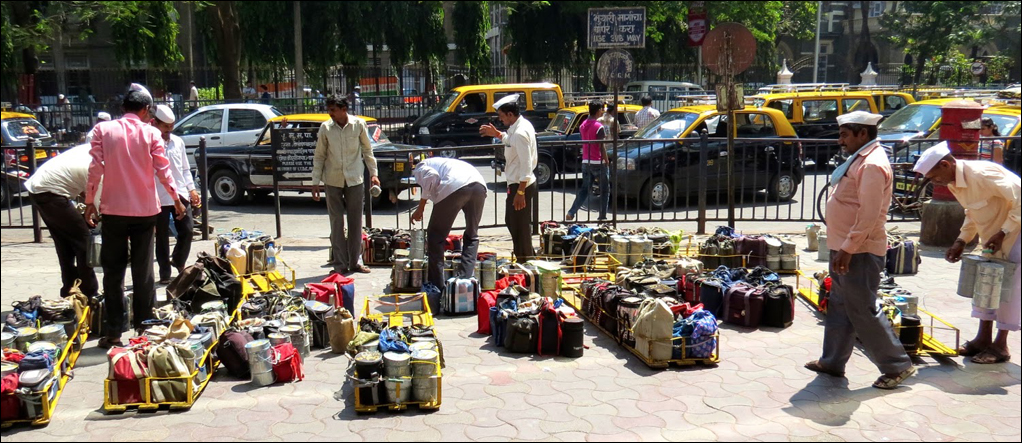
Why Mumbai Dabbawalas Inspire the World
The Dabbawalas are more than just food carriers; rather, they represent Mumbai’s true spirit — resilience, unity, and humanity. In fact, their remarkable commitment has made them living examples of how passion can turn into purpose. Furthermore, colleges and business schools frequently invite them to share their inspiring journey, thereby teaching students how time management, discipline, and ethics can together build a sustainable and successful system.
Moreover, they strictly adhere to a well-defined code of conduct — no alcohol, tobacco, absenteeism, or negligence — which further strengthens their credibility. As a result, such professionalism not only keeps their reputation untarnished but also elevates them as global symbols of dedication and perseverance.
Indeed, the Mumbai Dabbawala continues to motivate entrepreneurs and organizations worldwide. Therefore, they prove that consistency, teamwork, and strong values can create excellence — even in the absence of advanced technology.

